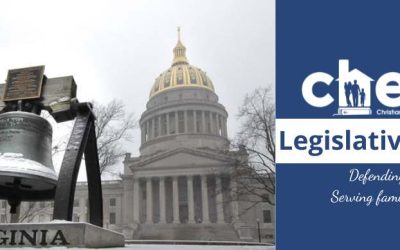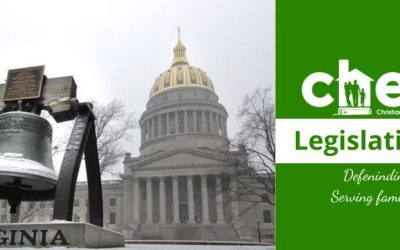Some of CHEWV’s board members recently returned from a national conference for Christian homeschool organizations. The hot topic this year was ESAs – Educational Spending Accounts – like West Virginia’s Hope Scholarship. Over the three-day conference, ESAs were THE topic of conversation at every meal as we talked with leaders from other state organizations. A full day of the conference was devoted to discussing ESAs.
So, what’s the big deal?
Most homeschool leaders from across the country are concerned that government funding will have a negative impact on Christian homeschooling. Even those who said that their state should provide the option for state funded instruction in the home expressed concerns about the impacts of such funding.
One significant concern was that with large amounts of funding available, virtual/video instructors will gradually take the place of the parent as the primary teacher. This would undermine the most important purpose and greatest opportunity of Christian homeschooling – discipling our children in the mind and ways of Christ. Certainly we realize that many homeschool families have for years used online and DVD classes to occasionally supplement parental instruction and enrich course content; the concern as expressed by national leaders is when these become the primary or exclusive method of instruction year after year.
Additionally, leaders expressed reservations about unintended consequences such as overspending of “free money” and accelerated inflation of curriculum prices. Some foresaw the potential weakening of local support groups, which would tend to diminish the health and vigor of homeschool interaction at the community level.
Across the nation, however, most apprehensions centered around the likelihood that government funding of some home educators will increase the regulation of all homeschoolers. West Virginia is not alone in having to fight back attempts to eliminate legal distinctions in state code and increased regulation of homeschoolers as part of, or in the wake of, ESA legislation.
Interestingly, one of the homeschool leaders, who also happened to be a physician, made a simple analogy to government-funded health care. He lamented that government involvement in healthcare has resulted in doctors who can no longer make unfettered decisions about what is best for their patients. Doctors now need the government’s approval to run certain tests or prescribe certain medicines — because the government is now the one paying for the care. What’s more, people are more likely to go to the ER for a simple fever or stomach ache because “it’s paid for” – which, of course, wastes government money and detracts from more urgent needs. He argues that the results of government-funded health care are easy to see: government intrusion into personal decisions, wasted money, and higher costs for everyone.
CHEWV’s message is simple: when it comes to homeschooling, we need to maintain the integrity of the “private option” for educating our children at home.
It is vital that the legal option for private homeschooling – the safety net to safeguard parental rights and protect children when necessary – be maintained, intact and unencumbered by excessive government requirements. This is both for those who want to educate their children at home by entirely “opting out” of the public system as well as for those who may need to bail out from government-funded systems in the future.
We recognize that any family could face a situation where, for a time, they felt the best option for them was government-funded health care. The same is true for home education. None of what is being said here is to denigrate or disparage anyone for using Hope funding. We simply want to point out specific, reasoned, potential problems that have been raised, with the earnest and prayerful expectation that we can all work together to protect the future of Christian homeschooling.
That’s what CHEWV has been doing for more than 30 years.





Recent Comments